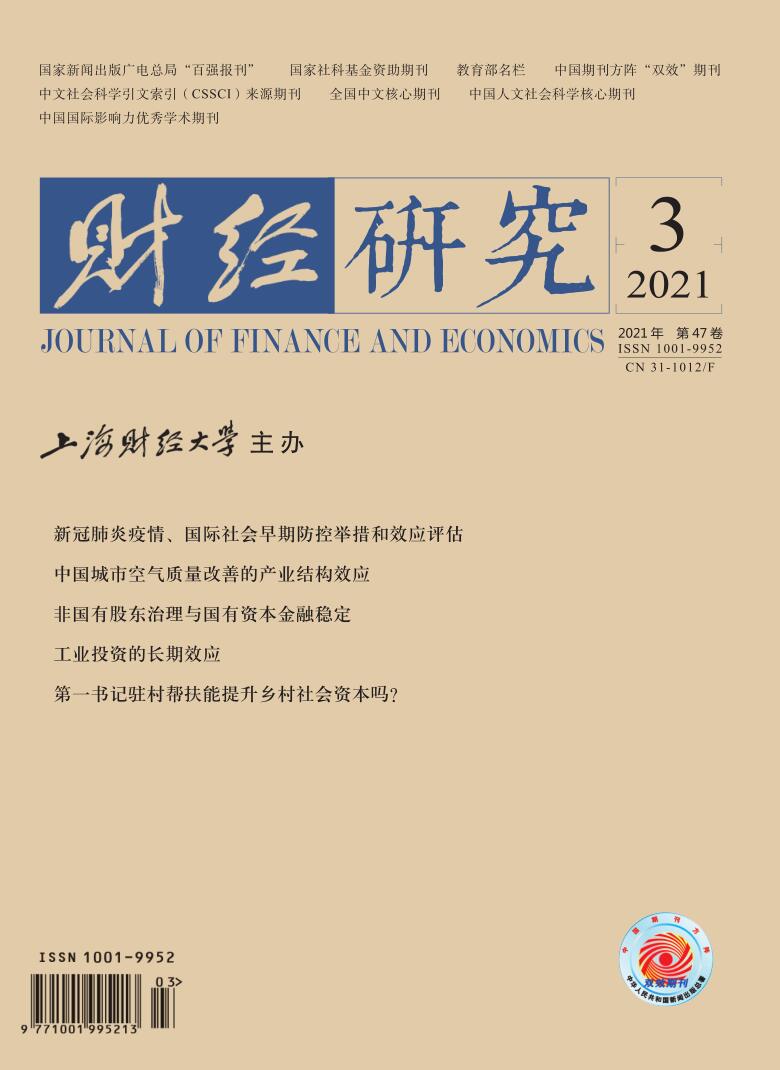国家领导人之间的访问活动在改善双边关系和处理国际问题等方面有着其他外交方式无法替代的重要作用。文章着眼于整体性和长期性角度,考察国家领导人之间的互访所产生的双边贸易效应,并基于2001−2017年的月度面板数据检验了中国与168个建交国家之间的领导人互访对进出口贸易的影响。研究发现:(1)中国领导人和外国领导人之间的互相访问展现了周边外交和大国外交协调推进的基本格局;(2)中国与贸易伙伴国之间的国家领导人互访活动显著促进了双边出口和进口贸易流量;(3)基于HS商品分类的分析显示,国家领导人互访对出口和进口的影响主要体现在贸易往来中相对弱势的一方,即扩大了非竞争优势产品进入对方市场的贸易机会;(4)基于产品分类和外交特点分组后的分析显示,国家领导人互访对相对弱势产品的贸易促进作用在周边外交和小国外交中更强。上述结论表明,国家领导人之间的互访有助于推动双边经贸往来,体现了外交为经济服务的实际作用以及合作共赢的交往理念。
中外领导人互访与双边贸易——基于月度数据的经验分析
摘要
参考文献
4 林发勤. 贸易中的引力模型: 理论基础与实证应用[M]. 北京: 经济科学出版, 2016.
12 Anderson J E,Van Wincoop E. Gravity with gravitas:A solution to the border puzzle[J]. American Economic Review,2003,93(1): 170−192. DOI:10.1257/000282803321455214
13 Che Y,Du J L,Lu Y,et al. Once an enemy,forever an enemy? The Long–run impact of the Japanese invasion of China from 1937 to 1945 on trade and investment[J]. Journal of International Economics,2015,96(1): 182−198. DOI:10.1016/j.jinteco.2015.01.001
14 Du Y X,Ju J D,Ramirez C D,et al. Bilateral trade and shocks in political relations:Evidence from China and Some of its major trading partners,1990-2013[J]. Journal of International Economics,2017,108: 211−225. DOI:10.1016/j.jinteco.2017.07.002
15 Fisman R,Hamao Y,Wang Y X. Nationalism and economic exchange:Evidence from shocks to sino–Japanese relations[J]. The Review of Financial Studies,2014,27(9): 2626−2660. DOI:10.1093/rfs/hhu017
16 Fuchs A,Klann N H. Paying a visit:The Dalai Lama effect on international trade[J]. Journal of International Economics,2013,91(1): 164−177. DOI:10.1016/j.jinteco.2013.04.007
17 Glick R,Taylor A M. Collateral damage:Trade disruption and the economic impact of war[J]. The Review of Economics and Statistics,2010,92(1): 102−127. DOI:10.1162/rest.2009.12023
18 Gowa J,Mansfield E. Power politics and international trade[J]. American Political Science Review,1993,87(2): 408−420. DOI:10.2307/2939050
19 Heilmann K. Does political conflict hurt trade? Evidence from consumer boycotts[J]. Journal of International Economics,2016,99: 179−191. DOI:10.1016/j.jinteco.2015.11.008
20 Kastner S L,Saunders P C. Is China a status quo or revisionist state?Leadership travel as an empirical indicator of foreign policy priorities[J]. International Studies Quarterly,2012,56(1): 163−177. DOI:10.1111/j.1468-2478.2011.00697.x
21 Lin F Q,Yan W S,Wang X S. The impact of Africa‐China's diplomatic visits on bilateral trade[J]. Scottish Journal of Political Economy,2017,64(3): 310−326. DOI:10.1111/sjpe.12128
22 Lin F Q,Hu C,Fuchs A. How do firms respond to political tensions? The heterogeneity of the Dalai Lama Effect on trade[J]. China Economic Review,2019,54: 73−93. DOI:10.1016/j.chieco.2018.10.009
23 Linder S B. An essay on trade and transformation[M]. New York: John Wiley & Sons, 1961.
24 Martin P,Mayer T,Thoenig M. Make trade not war?[J]. The Review of Economic Studies,2008,75(3): 865−900. DOI:10.1111/j.1467-937X.2008.00492.x
25 Morrow J D,Siverson R M,Tabares T E. The political determinants of international trade:The major powers,1907-1990[J]. American Political Science Review,1998,92(3): 649−661. DOI:10.2307/2585487
26 Nitsch V,Schumacher D. Terrorism and international trade:An empirical investigation[J]. European Journal of Political Economy,2004,20(2): 423−433. DOI:10.1016/j.ejpoleco.2003.12.009
27 Nitsch V. State visits and international trade[J]. The World Economy,2007,30(12): 1797−1816. DOI:10.1111/j.1467-9701.2007.01062.x
28 Plischke E. Diplomat in Chief: The President at the summit[M]. New York: Praeger, 1986.
29 Plouffe M,Sterren R. Trading representation:Diplomacy’s influence on preferential trade agreements[J]. The British Journal of Politics and International Relations,2016,18(4): 889−911. DOI:10.1177/1369148116659860
30 Pollins B M. Does trade still follow the flag?[J]. American Political Science Review,1989,83(2): 465−480. DOI:10.2307/1962400
31 Rose A K. The foreign service and foreign trade:Embassies as export promotion[J]. The World Economy,2007,30(1): 22−38. DOI:10.1111/j.1467-9701.2007.00870.x
32 Zhang J H,Van Witteloostuijn A,Elhorst J P. China's politics and bilateral trade linkages[J]. Asian Journal of Political Science,2011,19(1): 25−47. DOI:10.1080/02185377.2011.568241
引用本文
范建亭, 卢波. 中外领导人互访与双边贸易——基于月度数据的经验分析[J]. 财经研究, 2021, 47(3): 155-168.
导出参考文献,格式为:
下一篇:绿色金融与企业污染治理






 6881
6881  8749
8749

